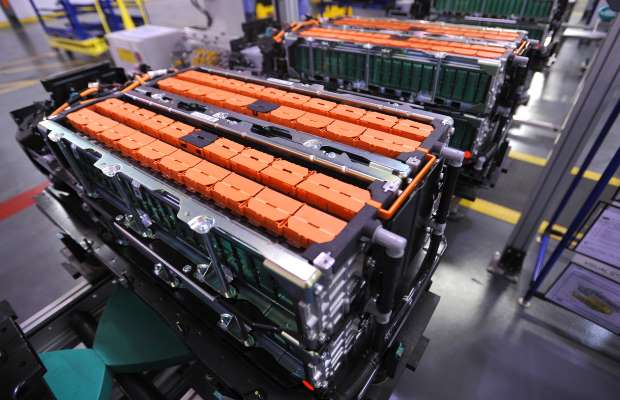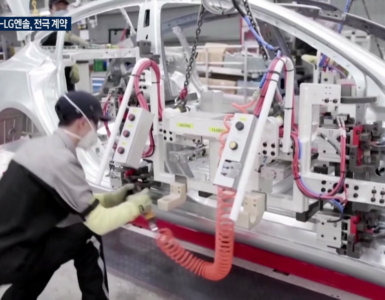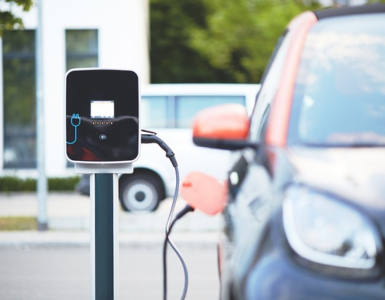With this incentive, India could become a major hub for lithium ion battery manufacturing.
[Manufacturing Today] India Energy Storage Alliance (IESA), an alliance on energy storage & e-mobility and its member companies, have welcomed the Cabinet’s approval on the proposal by Department of Heavy Industry for implementation of the Production Linked Incentive (PLI) Scheme on Advanced Chemistry Cell (ACC) Battery Storage’ for achieving manufacturing capacity of 50 GWh of ACC and 5 GWh of “Niche” ACC with an outlay of Rs.18,100 crore (2.7 USD Billion).ACCs are the new generation of advanced storage technologies that can store electric energy either as electrochemical or as chemical energy and convert it back to electric energy as and when required.
The consumer electronics, electric vehicles, advanced electricity grids, solar rooftop etc. which are major battery consuming sectors are expected to achieve robust growth in the coming years. It is expected that the dominant battery technologies will control some of the world’s largest growth sectors.
🔥 What about we co-host a webinar? Let's educate, captivate, and convert the battery economy!
Batteries News is the global go-to online magazine for the battery industry, we can help you host impactful webinars that become a global reference on your topic and are an evergreen source of leads. Click here to request more details
Prakash Javadekar, Chairing the Cabinet briefing, Union Minister of Heavy Industries & Public Enterprises, said
The Union Cabinet has taken a big decision to make the dream of Make in India. Everyone knows how much battery storage is important.
“Today, many things are stuck due to a lack of battery storage. India imports Rs. 20,000 crore of battery equipment from outside. In such a situation, the government has now announced Production Linked Incentive (PLI), due to which the import will be reduced.”
READ the latest Batteries News shaping the battery market
He said ACC battery storage will be manufactured in India. To promote the ‘Make in India’ initiative, the Minister said the National Programme on Advanced Chemistry Cell (ACC) Battery Storage is expected to attract investment of Rs 45,000 crore. “This will give a boost to electrical vehicles, electrical mobility in the country. Long-lasting batteries and fast charging batteries are the need of the hour.”
Dr. Rahul Walawalkar, President, India Energy Storage Alliance (IESA), said.
This is a dream come true for IESA team, who has been working hard since 2016 for bringing focus to advanced manufacturing capabilities and believes that India has a potential to become a R&D & manufacturing hub of advanced energy storage technologies.
“The approval of ACC programme will enable Indian conglomerate to take the 1st step to become part of the global advanced battery manufacturing ecosystem and attract global technology leaders and investors to invest in India.”
He said ACC batteries will be crucial for India’s energy security in the coming decade given its role in enabling renewable integration and e-mobility transition. “This is high time to make India Aatmanirbhar and reduce dependence on other countries.”
Last month, IESA wrote a letter to the PMO requesting to expedite the launch of the Advanced Chemistry Cell – Gigafactory Manufacturing Plan and requesting steps for demand creation.
To understand more details about the ACC program, IESA had organized a webinar in Nov’2020 where in Niti Aaayog has joined along with Industry experts and government representatives and discussed the details about the program, application procedure, eligibility criteria and incentive details.
IESA along with the support of our 120+ members & other stakeholders are working closely with various government bodies to support the industry to make India as a global hub for manufacturing and adoption of energy storage & electric mobility technologies.
IESA has planned a series of activities for next 3 months to support awareness creation about the ACC Battery Manufacturing opportunity and will also host a 5- day Masterclass on ACC Battery Manufacturing in June.
IESA is also partnering with many trade promotion agencies for exploring bilateral collaborations to attract investments to support the Atma Nirbhar Bharat mission during May-June.
- It approves Rs 18,100 crore Production Linked Incentive scheme for ACC battery manufacturing in India.
Cabinet approves national programme on Advanced Chemistry Cell battery storage, May 13, 2021









1 comment